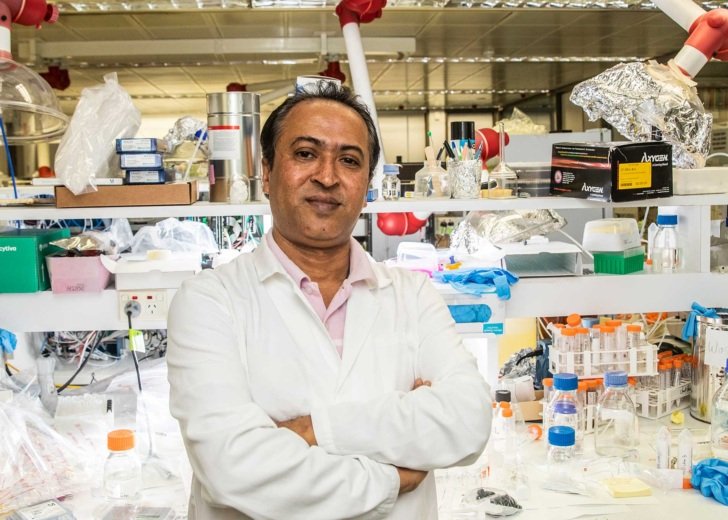In a cutting-edge discovery, published today in the Journal of the American Chemical Society, Florey scientists have solved a long-standing problem: the need for an affordable, simple way to make peptide-based drugs that hold their necessary shape.
Professor Akhter Hossain, Head of the Insulin Peptides Group at The Florey, said peptides, the smaller relatives of proteins, are easy to make in a laboratory, have therapeutic potential and are considered safe. However, without the proper structure, the peptides become floppy and inactive.
“Peptides form unique structures that fit like jigsaw pieces into receptors in the brain or elsewhere in the body. They modulate a diverse range of essential bodily functions.”
Professor Hossain said our bodies naturally use complicated means of introducing structure into peptides to make them work, which is challenging to replicate in the drug development.
“Peptide stapling has been highly successful in overcoming this problem but the current methods are costly and involve complex chemistry and purification,” he said.

The paper’s lead author and Head of The Florey’s Neurotherapeutics Theme, Professor Ross Bathgate, said by simplifying peptide stapling, the team had turned a multi-step, week-long process into a shorter, single-step one.
“Our new approach is flexible, easy to implement, and will make it easier for researchers and pharmaceutical companies to develop peptide-based drugs. Now we can easily make peptides with the correct structure to bind to their target receptors. Our ultimate goal is for this technology to be used to treat a range of disorders,” Professor Bathgate said.
“In our laboratories at The Florey we’ve used this technology successfully in the earliest stage of drug discovery, and believe it will likely be applicable to a range of potential therapeutic targets for peptide-based drugs,” Professor Hossain said.
Funding
This research was funded by NHMRC (Australia) Ideas Grants, by an NHMRC Fellowship, by a Spanish Ministerio de Ciencia, Innovación y Universidades, grant. Studies at The Florey were supported by the Victorian Government’s Operational Infrastructure Support Program.
Media contact
Kath Powley, Manager, Media and Communications
[email protected] | +61 456 666 271
